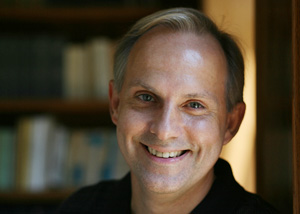By Terry Goodrich
“Heaven is for real,” according to the new movie by that name. But which vision of heaven is true?
Several versions of heaven are depicted in art, literature, music and pop culture — some of which don’t mesh with Christian doctrines, said author and pop culture critic Greg Garrett, a professor of English at Baylor University.
Actually, the Bible gives little detail about heaven, and many people rely on imagination, he said.
 In the movie Heaven is for Real — which is based on the bestseller about a real-life family — a little boy who undergoes an operation for a ruptured appendix takes a trip to heaven, walking hand-in-hand with Jesus and spotting a rainbow horse before returning to earth.
In the movie Heaven is for Real — which is based on the bestseller about a real-life family — a little boy who undergoes an operation for a ruptured appendix takes a trip to heaven, walking hand-in-hand with Jesus and spotting a rainbow horse before returning to earth.
Consider these variations of heaven, Garrett suggests:
Paradise. This is a place where dreams come true, as in the movie Field of Dreams — or perhaps Sports Illustrated swimsuit issues, with photos of lovely women in idyllic locations and the headline “Paradise Found.”
Heaven as haven. This is a place where human beings are reunited with the people they love. At the end of the movie Titanic, Rose passes through the ranks of passengers lost on the ship, ascends the stairs and takes the hand of her beloved Jack, Garrett notes. This vision of heaven is compatible with such hymns as When the Roll is Called Up Yonder.
Zion: No enemies allowed. “The closing scene of Les Miserables shows the Paris barricades populated by all who have died and gone before us, singing about how the fallen ‘will live again in freedom in the Garden of the Lord’ — all, that is, except for that miserable Inspector Javert,” Garrett said. Then there’s the cabbie in a Marc Cohn song. He looks forward to heaven, where he won’t have to listen to tiresome passengers.
Earth 2.0. Consider it a place where we go on doing what we do. In Heaven Can Wait, Warren Beatty, cast as a player for the Los Angeles Rams, dies before his time, thanks to an over-eager guardian angel. He is cremated, and the search begins for a new body, which turns out to be that of a murdered millionaire who buys the Rams, then pursues Beatty’s dream of leading the Rams to a Super Bowl victory.
Garrett questions what such views of heaven say about those who hold them.
Why would Paradise be a place where people simply achieve what they’ve always wanted, whether keeping off the pounds or taking a permanent vacation? And sure, he said, reuniting with friends and relatives would be wonderful, but shouldn’t union with God be the primary attraction?
And a heaven that allows no one in whom we despise is just as questionable.
“We seem to want to go on building little gated communities, even in the next life,” Garrett said. But where does “love your enemies” fit into that picture?
He added that heaven should be more than just a change of address, with life going on as it does now — albeit happier.
Garrett will explore depictions of death and the afterlife in religious and popular literature, film and TV in his upcoming book Entertaining Judgment: The Afterlife in Literature and Popular Culture, to be published in the fall.
Garrett is the author of several nonfiction books, among them The Gospel According to Hollywood and We Get to Carry Each Other: The Gospel According to U2. He also wrote the novels Free Bird and Cycling, and memoirs titled Crossing Myself and No Idea.
